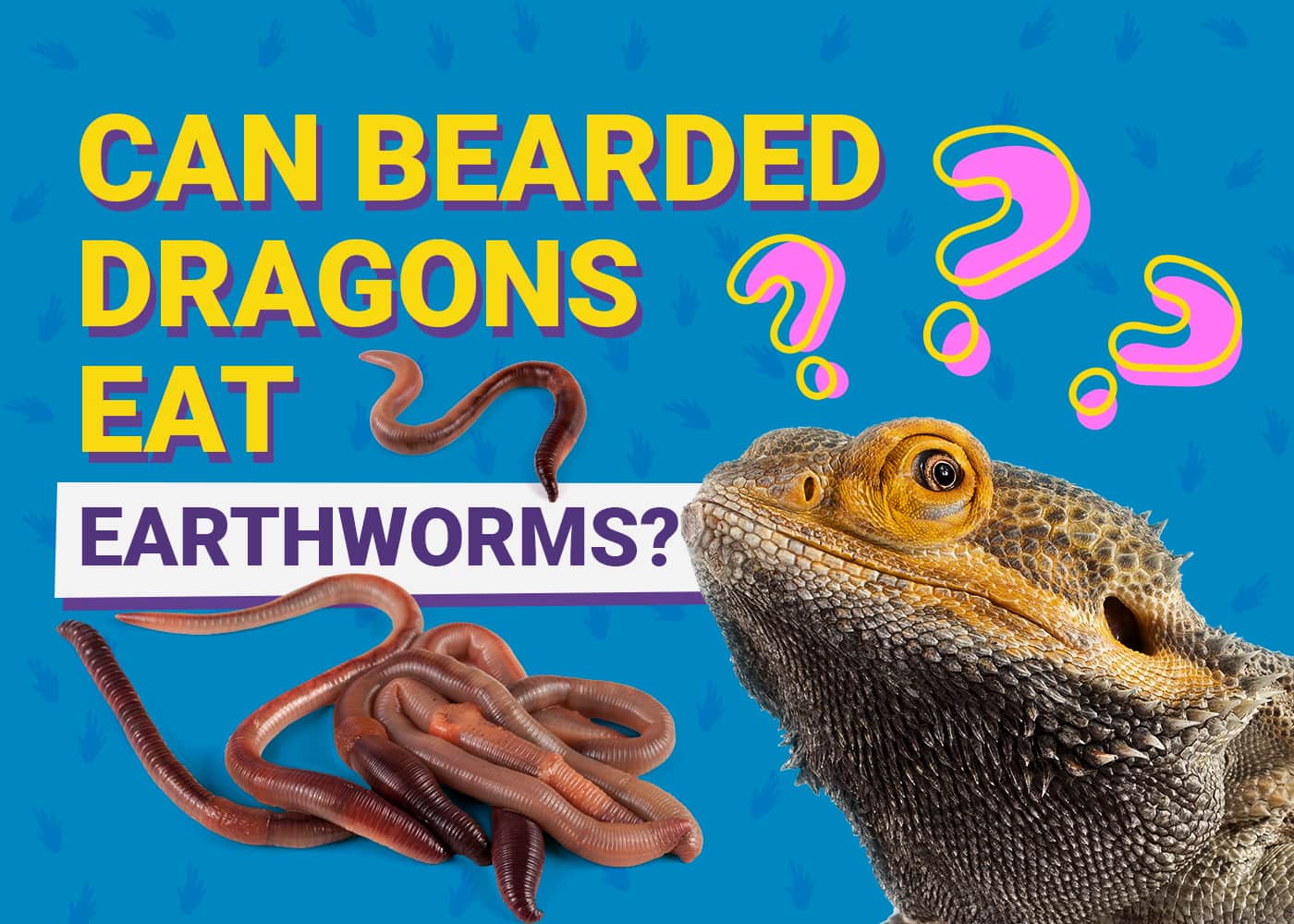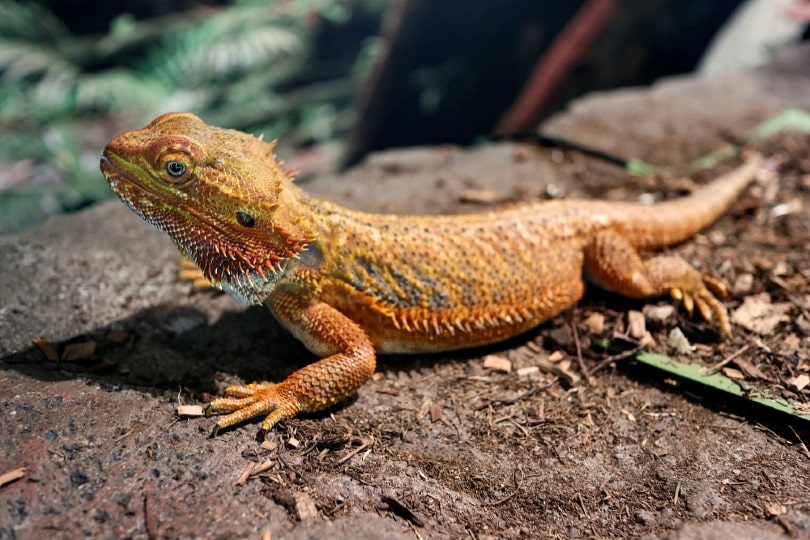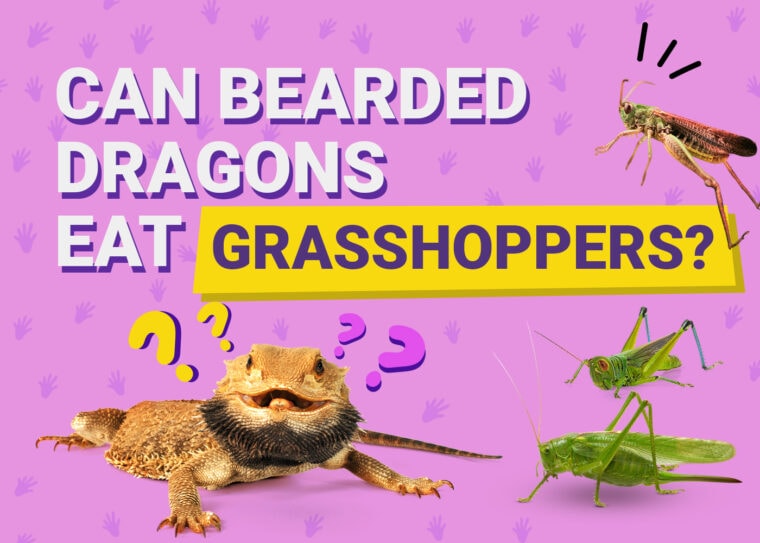
Have you ever considered a lizard for a pet? If so, you should definitely check out the bearded dragon. These reptiles make wonderful pets for those looking to get into herpetology. They are one of the most delightful species around and it is super easy to take care of them.
One of the keys to keeping your bearded dragon happy is to make sure they eat healthily. As reptile owners, we should strive to provide sustenance that they would generally find out in the wild. And since eating insects is a big part of their natural diet, it only makes sense that they should eat certain bugs. But can they eat grasshoppers?
Yes, bearded dragons can eat grasshoppers.
Let’s check out what a bearded dragon’s diet consists of and how grasshoppers can play a major role.
What Does a Bearded Dragon’s Diet Look Like?
A bearded dragon’s diet consists of a variety of fruits, vegetables, and animal-sourced protein—mainly insects. These insects are absolutely necessary since bearded dragons are omnivorous. They cannot just eat plant-based food. They need a proper amount of protein in their diet to get optimal nutrition.
So, if you’re squeamish around bugs, you’re going to need to get over your fear.
The amount of protein they need also changes as they grow bigger and older. Newborn bearded dragons require a diet that’s very high in animal-based proteins. Their diet should comprise 80-90% animal proteins and 10-20% plant matter. As juveniles, these ratios even out at 50% each. As adults though, bearded dragons require a mostly herbivorous diet (80-90% plant matter) and a small proportion of animal based protein.

Nutrients Found in Grasshoppers
Aside from grubs and mealworms, grasshoppers are among a bearded dragon’s favorite bugs to eat. The nutritional yield of grasshoppers varies slightly depending on which grasshopper you serve your bearded dragon. The following table summarizes the approximate key nutritional composition of two popular variants of grasshoppers1:
| Analysis | Green grasshoppers (Ruspolia differens) | Brown grasshoppers (Ruspolia differens) |
| Moisture content | 66.4% | 71.2% |
| Ash | 2.8% | 2.6% |
| Crude Protein | 43.1% | 44.3% |
| Crude Fat | 48.2% | 46.2% |
| Fiber | 3.9% | 4.9% |
Grasshoppers are also a good source of many minerals. A summary of their mineral content is as follows2:
| Mineral (mg/100g) | Green grasshoppers (Ruspolia differens) | Brown grasshoppers (Ruspolia differens) |
| Calcium | 27.4 | 24.5 |
| Magnesium | 33.9 | 33.1 |
| Potassium | 370.6 | 259.7 |
| Sodium | 358.7 | 229.7 |
| Phosphorus | 140.9 | 121 |
| Iron | 16.6 | 13.0 |
| Zinc | 17.3 | 12.4 |
| Manganese | 5.3 | 2.5 |
| Copper | 0.6 | 0.5 |
Because of their unfavorable calcium to phosphorus ratio, grasshoppers (like other live prey) should be dusted with calcium before being offered to your bearded dragon.
How Many Grasshoppers Can My Bearded Dragon Eat?
Before sourcing grasshoppers for your bearded dragon, ensure that it is legal to purchase live grasshoppers where you reside. In certain countries (such as the US), purchasing live grasshoppers is considered illegal, because of their status as a pest.
Even though bearded dragons love to eat grasshoppers, it is important that you only offer them the right amount each time.
The first thing to acknowledge is that your bearded dragon pet will need to eat other insects apart from grasshoppers. You wouldn’t want to be stuck eating the same thing every single day, right?
Neither does your bearded dragon.
Instead, offer grasshopper meals once a week. This way, he can also enjoy other insects while still getting to relish an old-time favorite.
When your bearded dragon is still a baby, their daily diet should have a 70% protein ratio. This is to ensure that they grow up to be big, strong, and healthy.
But how do you know how many grasshoppers are enough? Well, it depends.
How big are your grasshoppers? How hungry is your lizard? And is your bearded dragon in the mood to hunt? A conversation with an exotic veterinarian will help you narrow in on the right number for your beardie’s age and size.
Generally speaking, bearded dragons don’t overeat. And when they’ve had enough, they’ll simply stop eating. But that doesn’t mean you should leave uneaten grasshoppers in their habitats.
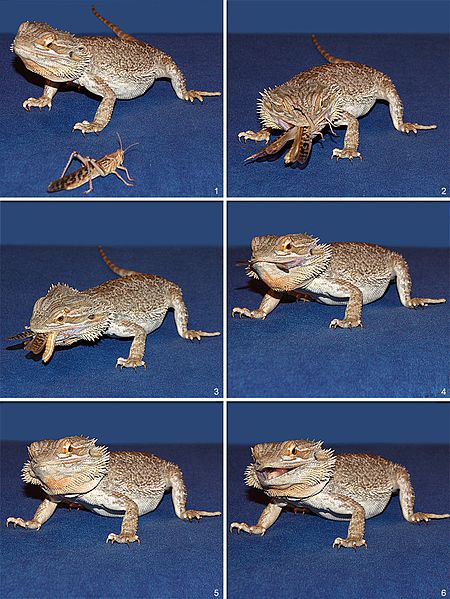
Can My Bearded Dragon Eat Wild Grasshoppers?
Bearded dragons are originally wild reptiles, and they eat many different insects. So, it might seem only logical that it’s safe for them to consume grasshoppers you’ve caught from your garden.
However, such is not the case.
Wild grasshoppers—especially those found in urban or farming settings—may have been exposed to or been in contact with pesticides. These chemicals can be extremely harmful to your little reptilian friend.
Don’t risk their health with wild grasshoppers.
You should only feed them grasshoppers that come from a reputable retailer or pet store—or those you raise especially at home.
Other Insects Bearded Dragons Can Eat
Looking to feed your bearded dragon other insects?
Give these insects a try when feeding your bearded dragon:
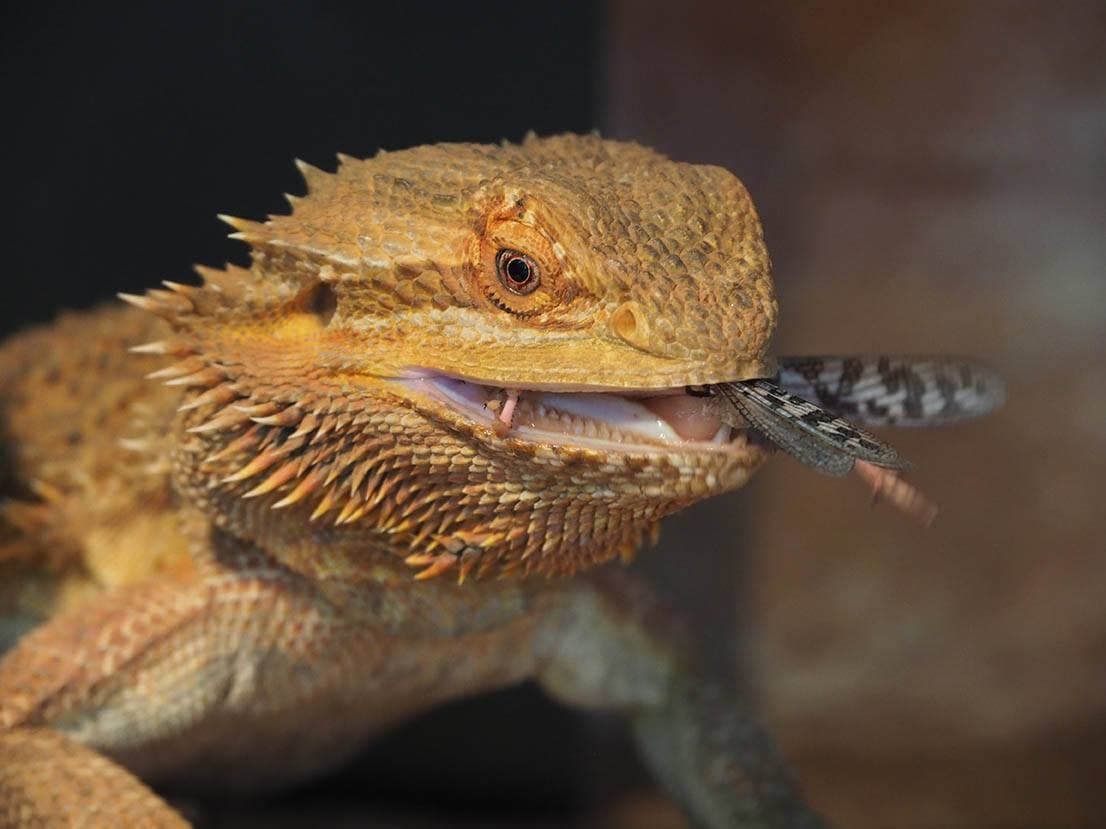
Conclusion
While they might not be a tasty snack to many of us, grasshoppers make for a wonderful mealtime staple for bearded dragons. They’re cheap, nutritious, and delicious—for your beardie at least.
But remember, stay away from wild-caught grasshoppers because you don’t know where they’ve been. And they may be carriers of pesticides or other poisons.
Related Reads:
Featured Image Credit: Pixabay





